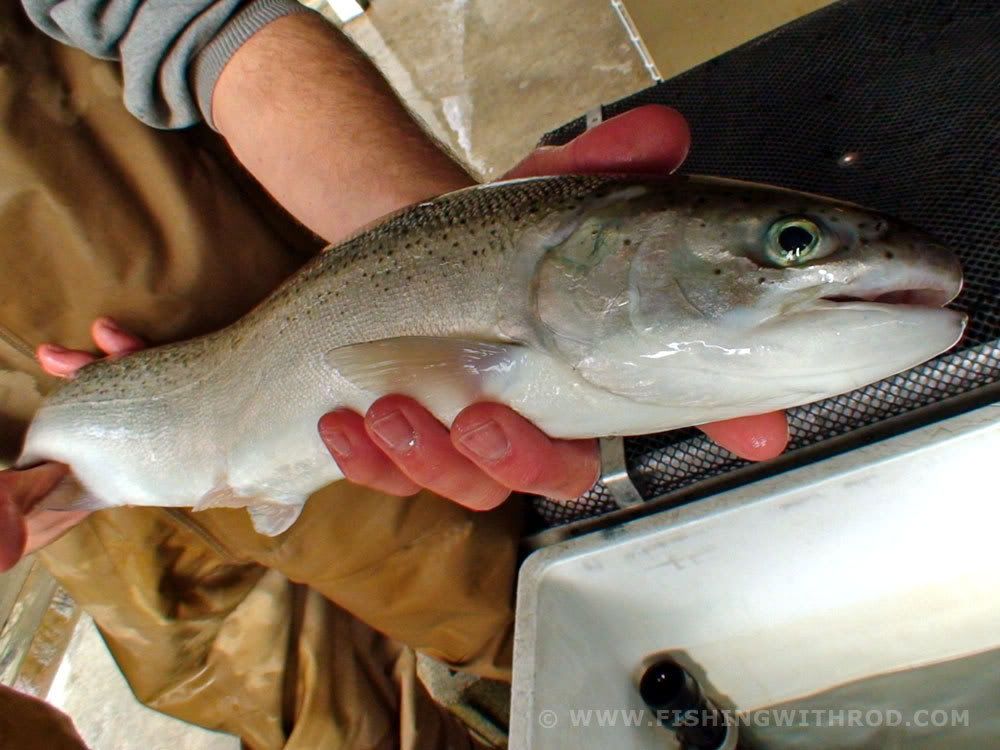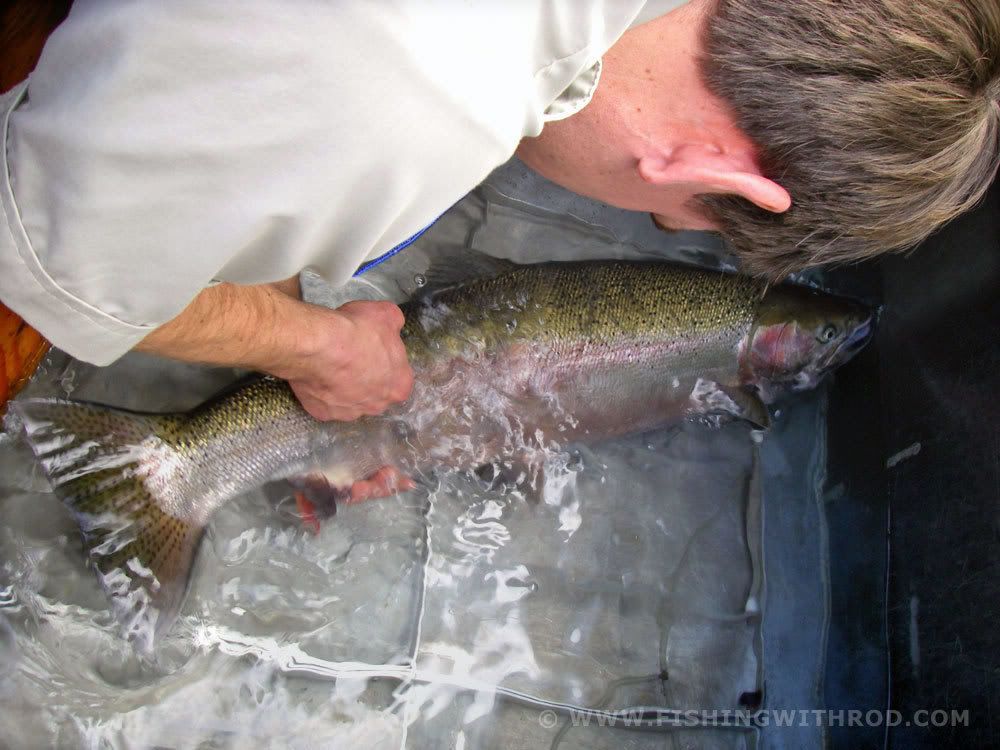Long, fat and beautiful
Published on Friday, May 9th, 2008
Today’s outing on a Lower Mainland lake was the best one so far this season. After hooking numerous fish on a brown leech pattern, I rigged up a flyfishing rod with an indicator for my friend Erin who has never flyfished before. After several misses, the indicator took a dip and remained under for a long time. Without being alerted, Erin yanked the rod back and the full bend suggested a much larger fish at the other end. I had to stop Erin from stripping in the line so quickly because the fish was pulling just as hard at the other end. With constant headshakes, this fish remained in the deep as it made its way to the boat.
Its first surfacing had me looking for the landing net frantically. It was easily the biggest cutthroat trout that I have seen from this lake! I leaned over to see where it was. A couple of times it made us hold our breath as it went for the anchor rope. The fly line’s loop connector to the leader was now caught at the rod tip. She had no way to bring the fish to the surface and I was too afraid to grab the line. Finally with some pulling the loop freed itself from the tip and the fish resurfaced. On my third try, I managed to slipped the entire fish into the net. Not only was it long, it was fat unlike some of the early season fish that we often see. The semi-silvery, heavily spotted body also made it the prettiest specimen I have seen to date.

The Freshwater Fisheries Society of BC produces and stocks a strain of cutthroat trout that are known as Taylor 3N. Even though most Southern Coastal BC lakes’ low nutrient productivity is unable to yield large trout, these ferocious cutthroat trout often grow rapidly by feeding on larger food items such as leeches and sticklebacks. Released as yearlings, their average size can reach 5lb in two to three years. The fishing is especially good at lakes that are stocked with Taylor 3Ns and designated as a catch and release fishery. Look out for these lakes by searching the stocking history and take advantage of the first class fisheries around you.


